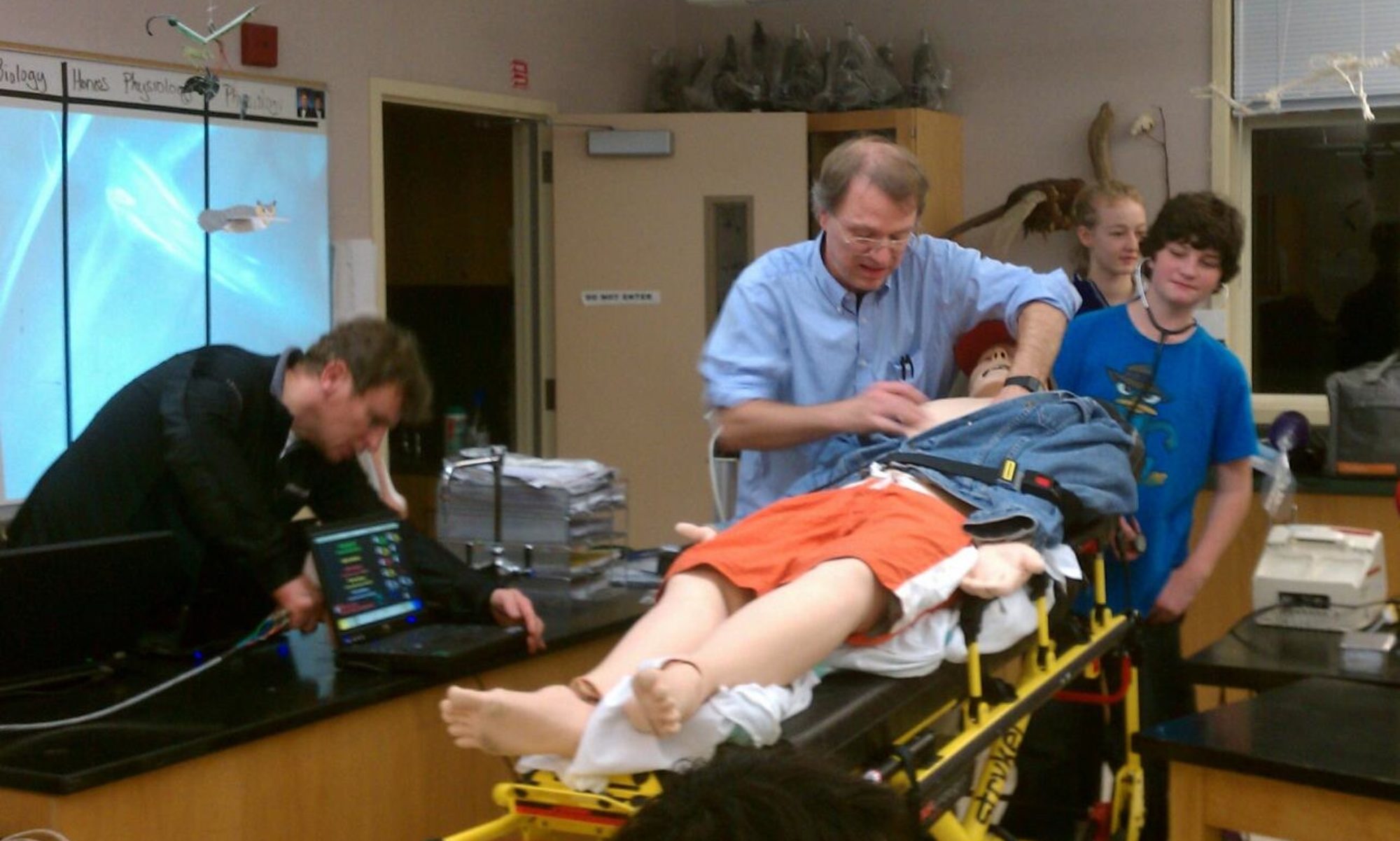by Shoshana Harlem, Terra Linda High School
Eric Engh, an insect ID Specialist, works for the Marin-Sonoma Mosquito Vector. He also runs educational programs for the Marin-Sonoma Mosquito Vector. He has a Bachelor’s degree in Environmental Studies and an M.S. in Entomology from University of Florida.
1. What made you want to study insects?
I have been interested in insects ever since I was a small child. I was also really lucky to have an excellent mentor- Ron Keith. He was our Vector Ecologist for Marin/Sonoma Mosquito and Vector Control District for over 30 years. Not only did he teach me much about entomology, he excelled at explaining information in a friendly and simple manner without making the listener(s) feel stupid. In the 5 years that I got to work with him, I got to see him help hundreds of people with their entomological inquiries.
2. What are the best parts of your job? What are the worst?
 I don’t really have any complaints about my job. I enjoy teaching about entomology, developing curriculum and interactive displays for public events, and I really enjoy being a resource of information for the public. The most difficult part of my job has to do with people who are convinced that some unseen insect is biting/infesting them, but there is no concrete evidence to support this. There are many causes of skin irritation similar to an insect bite that include but are not limited to: environmental sensitivities, allergies, reactions to various chemicals or medications, mental conditions, etc.. These cases can be very difficult because the person is absolutely convinced they have an insect infestation, and they often have already been turned away by doctors, family members etc., and are extremely frustrated. I can identify insects, but in these cases there is little I can do to help, and resources available for people with these problems are scarce.
I don’t really have any complaints about my job. I enjoy teaching about entomology, developing curriculum and interactive displays for public events, and I really enjoy being a resource of information for the public. The most difficult part of my job has to do with people who are convinced that some unseen insect is biting/infesting them, but there is no concrete evidence to support this. There are many causes of skin irritation similar to an insect bite that include but are not limited to: environmental sensitivities, allergies, reactions to various chemicals or medications, mental conditions, etc.. These cases can be very difficult because the person is absolutely convinced they have an insect infestation, and they often have already been turned away by doctors, family members etc., and are extremely frustrated. I can identify insects, but in these cases there is little I can do to help, and resources available for people with these problems are scarce.3. How can people protect themselves from being bit by mosquitos?
There are many things people can do to protect themselves from mosquitoes:
Wear EPA approved mosquito repellent while spending time in areas where mosquitoes are present.Search around your home for any source of still water where mosquitoes may breed. Dump out small amounts of water that accumulate in items that don’t require water (buckets, toys, junk, etc.), rinse out items that require small amounts of water (bird baths, pet water dishes, etc.) at least once a week. Don’t ignore mosquito problems! Call the Marin/Sonoma Mosquito and Vector Control District for help locating unknown sources of mosquitoes or to help with a mosquito-related problem that you cannot resolve on your own.
4. What should people do if they get bit by a mosquito?
The most important thing to do is to not make the problem worse by itching the bite site and scratching open the skin, which invites infection. There are over-the-counter products that are commonly available to help reduce itching sensation, or if someone has a serious reaction to a bite, they should consult a doctor.
5. What current projects are you working on?
I am currently working to create a curriculum for local vectors (mosquitoes, ticks, yellow jackets), that reinforces the Next Generation Science Standards. We provide an education program to schools, and we are trying to make it interesting, useful and informative. We are also involved in a number of other projects including surveillance for invasive species of mosquitoes.
Want to learn more about Eric Engh and mosquitos? Join us on Wednesday, October 11, 2017 at Terra Linda High School from 7:30 PM – 8:30 PM in Room 207!
Learn more at: http://msmosquito.com/


